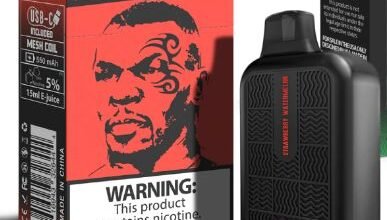CVID and Psoriasis: Understanding the Connection
CVID and Psoriasis: Understanding the Connection

Introduction to Psoriasis and Its Relation to the Immune System
Psoriasis is more than just a skin condition. It’s a chronic autoimmune disorder that speeds up the skin cell production process, leading to itchy, scaly patches on the skin. Affecting millions across the globe, psoriasis is deeply tied to the immune system, where an overactive immune response mistakenly attacks healthy skin cells.
But what happens when psoriasis intersects with a complex immune condition like CVID (Common Variable Immune Deficiency)? For those managing these two conditions simultaneously, the road to understanding and care can feel overwhelming. This blog dives into the intricate relationship between CVID and psoriasis, offering insights, expert advice, and a roadmap for improving quality of life.
Understanding the Impact of CVID on the Immune System
What is CVID?
CVID, or Common Variable Immune Deficiency, is one of the most prevalent primary immunodeficiency disorders. Individuals with CVID have a weakened immune system due to low levels of immunoglobulins (antibodies), making them more susceptible to recurrent infections and various autoimmune diseases.
How Does CVID Affect the Immune System?
The immune system of someone with CVID functions inefficiently, often failing to produce an adequate immune response. This dysfunction leaves the affected individual vulnerable to bacterial and viral infections. Strikingly, many people with CVID also develop autoimmune disorders—conditions where the immune system mistakenly attacks the body’s own tissues.
Psoriasis, itself an autoimmune condition, adds another layer of complexity when co-occurring with CVID. To better understand this interplay, we must examine the shared and distinct traits of these two conditions.
Examining the Intersection of CVID and Psoriasis: Commonalities and Differences
What They Share in Common
- Autoimmune Components: Psoriasis and CVID both involve immune dysregulation. While psoriasis is marked by an overactive immune response targeting the skin, CVID often results in immune system inefficiency.
- Triggers: Stress, genetic predisposition, and environmental factors can trigger or exacerbate both conditions.
- Inflammation: Chronic inflammation is a hallmark of both CVID and psoriasis, leading to complications beyond the initial symptoms.
Key Differences
- Immune Functionality: Psoriasis is primarily about an overactive immune response, while CVID stems from a weakened or underperforming immune system.
- Manifestations: Psoriasis typically presents with visible skin symptoms, while CVID manifests as recurrent infections, gastrointestinal issues, or broader systemic conditions.
Despite these differences, the co-existence of both conditions creates unique challenges that require an informed and integrative approach to management.
Management and Treatment Approaches for Patients with CVID and Psoriasis
Managing CVID and psoriasis concurrently requires a delicate balance. Treating one condition without considering the other could inadvertently worsen symptoms or trigger complications.
- Immunoglobulin Replacement Therapy (IVIG or SCIG): A standard treatment for CVID, this therapy helps boost immune response and reduce infection rates. While it doesn’t directly address psoriasis, strengthening overall immunity can provide indirect benefits to skin health.
- Topical Treatments for Psoriasis: Ointments and creams like corticosteroids or salicylic acid are commonly used to manage psoriasis symptoms. Since they’re localized, these treatments typically don’t interfere with CVID targeted therapies.
- Biologics: Some biologic treatments work for both autoimmune disorders and conditions related to defective immunity. Biologics like TNF inhibitors or IL-17 inhibitors can target the inflammation sources driving psoriasis while being cautiously monitored for CVID compatibility.
- Lifestyle Adjustments: A nutrient-rich diet, regular exercise, and stress management can improve overall immune health and alleviate psoriasis symptoms.
It’s critical to work closely with a team of immunologists and dermatologists to develop a treatment plan tailored to the patient’s unique needs.
Insights from Experts and Real-life Stories: Living with CVID and Psoriasis
Expert Perspectives
Dr. Maria Henderson, an immunology expert, notes, “Treating conditions like CVID and psoriasis together requires a nuanced approach. The key is minimizing immune system triggers while avoiding overly suppressive therapies that could worsen infections.”
Real-life Example
Meet Sarah, a 33-year-old artist diagnosed with CVID and plaque psoriasis. She shares, “At first, it felt like an impossible balancing act—every treatment seemed to help one condition while flaring the other. But with biofeedback training, dietary changes, and a great team of doctors, I’m not only managing but thriving.”
Stories like Sarah’s remind us of the resilience and adaptability of the human spirit, even in the face of challenging health conditions.
Strategies for Improving Quality of Life and Wellness for Patients
Living with CVID and psoriasis requires a holistic approach. Here are actionable strategies to enhance your overall well-being:
- Regular Check-ups: Maintain open communication and regularly meet with healthcare providers to monitor changes in symptoms and adjust treatments as needed.
- Mind-Body Practices: Yoga, meditation, and mindfulness exercises can help alleviate stress, a key trigger for both psoriasis and autoimmune flares.
- Diet and Nutrition: Nutrient-dense diets rich in antioxidants, omega-3 fatty acids, and anti-inflammatory foods can support healthier skin and immune function.
- Support Networks: Joining CVID or psoriasis support groups (online or in-person) can provide emotional comfort, practical tips, and coping strategies from others who understand your experience.
The Future of CVID and Psoriasis Research and Treatment
Advancements in medicine and technology offer hope for more effective treatments. Researchers are actively exploring ways to fine-tune immunotherapies and biologics to target specific immune pathways. Genomic research is also helping uncover genetic links behind both CVID and psoriasis, paving the way for personalized medicine.
Promising developments include:
- AI-driven diagnostic tools to predict flares more accurately.
- Targeted biologic therapies that offer precision without compromising other immune functions.
- Ongoing studies in microbiome health for insights into immune system regulation.
With continuous research, the future looks bright for improving outcomes and quality of life for those managing CVID and psoriasis.
Thriving with CVID and Psoriasis
Living with CVID and psoriasis may come with challenges, but it’s far from insurmountable. With the right medical support, treatment strategies, and focus on self-care, individuals can lead fulfilling and vibrant lives.
Whether you’re navigating these conditions yourself or supporting a loved one, remember—you are not alone. Understanding the nuances of both conditions and staying connected with the medical and support communities can make all the difference.
If you’re looking for more information or resources to guide you, don’t hesitate to reach out to healthcare professionals or patient advocacy groups dedicated to CVID and psoriasis.



